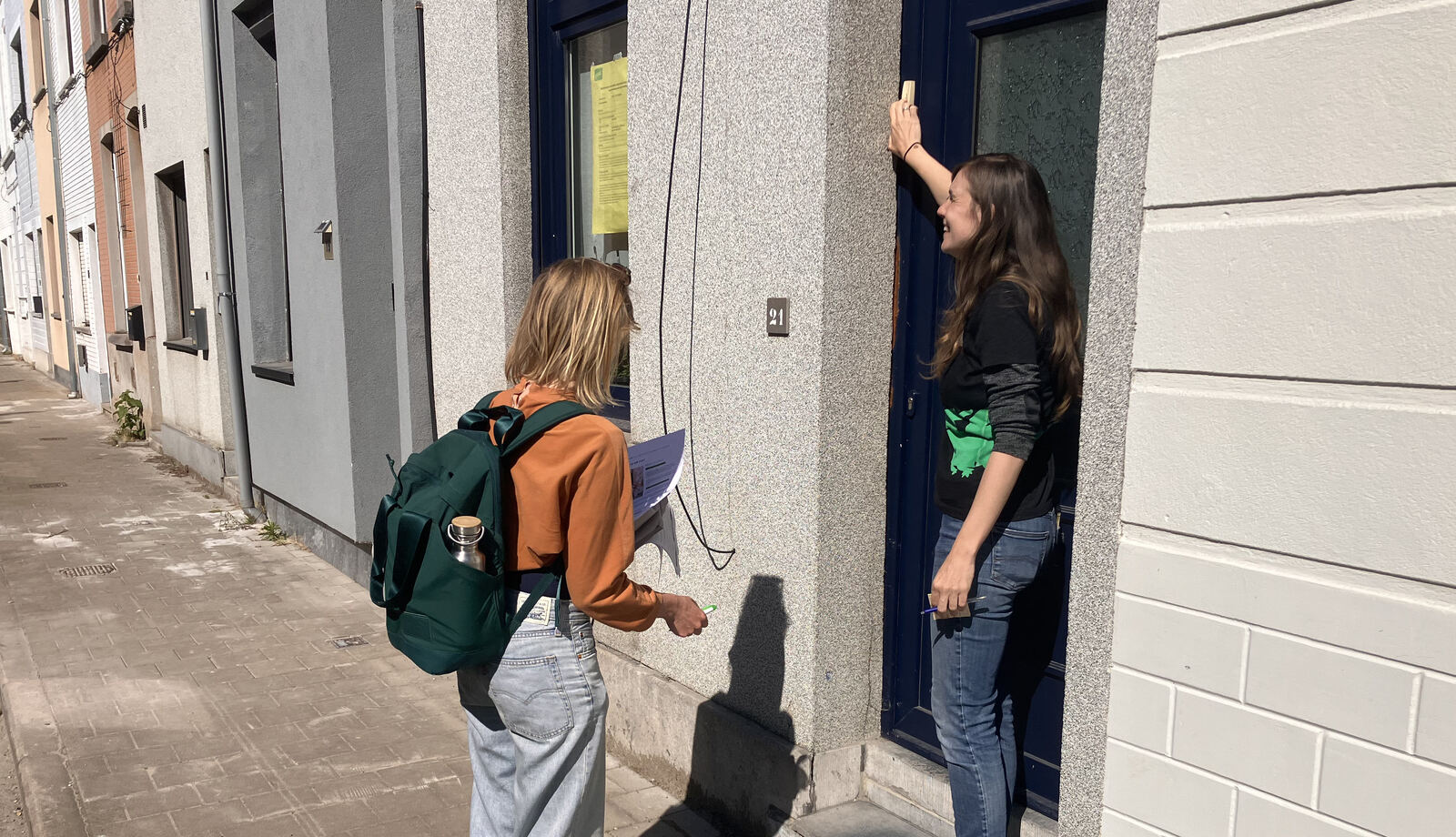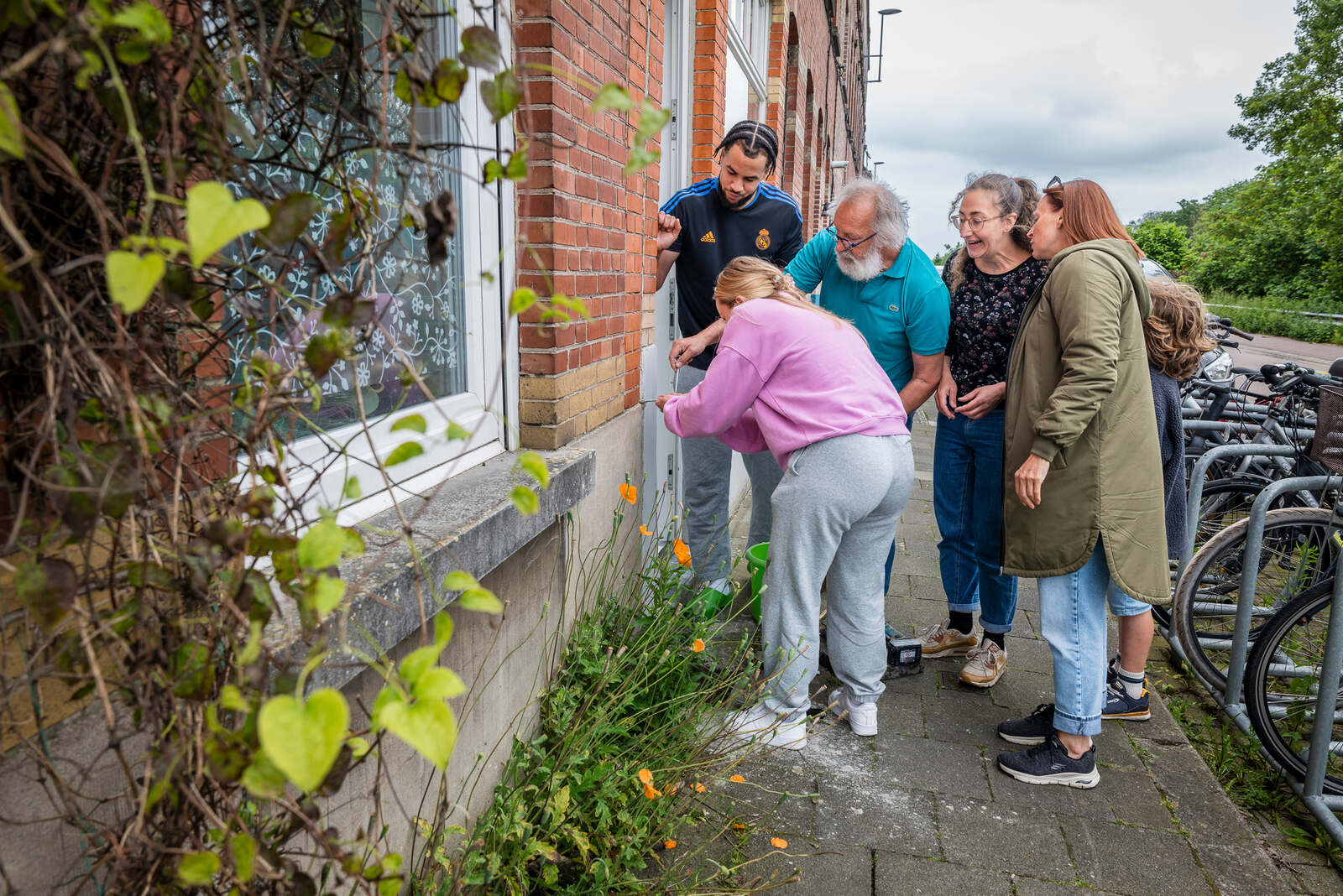The first major Ghent experiment within Rewild the City has started. Since the beginning of May, a special research project on desealing has been running on an old factory site.
On the site where the company Fluvius used to be, a neighbourhood park and a new school will be built within a few years. Today, the ground is almost completely sealed.To build the park, the paving has to be removed, so the City of Ghent, Ghent Environmental Front, Ghent University and the non-profit association Viaverda seized the opportunity to experiment with desealing techniques.
.jpg)
How does new vegetation develop if different types of debris remain in the soil when the site is desealed? Do plants grow better, or just barely? The results should help to make paved areas such as streets, business parks and courtyards greener more efficiently.
To measure the impact of soil composition on the growth of flowers and plants, Ghent Environmental Front laid out 36 planting beds of 4 square metres each. To do so, it broke up various types of paving, from concrete paving stones to asphalt.
In some cases the foundation disappeared, in others it remained. In still others, it was mixed with other layers of soil. Herbs such as clover and narrow plantain or thyme and catnip were then sown or planted in the different compartments. In this way, the researchers will later find out which vegetation thrives on which soil.
Gallery
.jpg)
.jpg)
.jpg)
.jpg)
.jpg)
.jpg)
.jpg)
.jpg)
.jpg)
.jpg)


%20cover%202.jpg)
